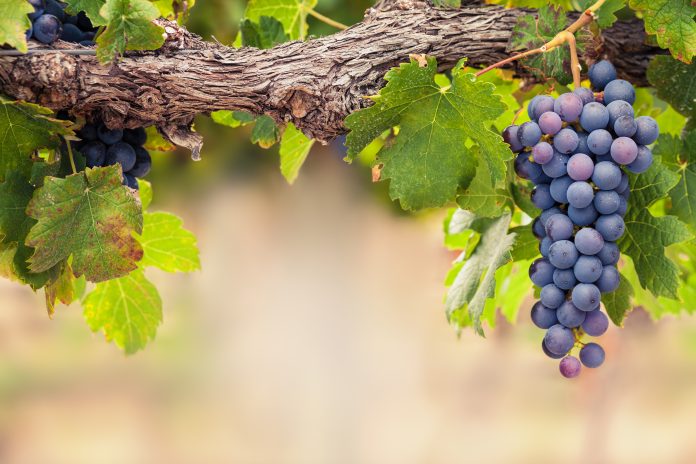
by Cullen Schippe
For me, one of the highlights of the Church year was not liturgical.
It was the parish fall festival with the freshly harvested fruits and vegetables, with home-baked goodies, with fun and games, and with a warm sense of family all around.
The fall festival was a parochial Linus blanket, and thoughts of it are reminders of a simpler and more secure time.
Today security is less a sense of home and community. Security is now a product that insures our well-being. Our home needs to be as safe as a fortress. Investments need to be insured. Wages must be guaranteed. In a world in the wake of events such as the Murrah Federal Building destruction, the attacks of 9/11, or the massacre in Norway, security cannot be left to chance.
Yet, everyone knows that there are no security systems—no comforting fall festivals—that can keep out all dangers. Living and growing involves risk. Christ is not the master insurance broker with the Church as an exclusive agent. Rather, Jesus offers assurance not insurance.
Saint Paul wrote about those assurances to the Galatians who were on edge to know that they were justified and that their relationship with God was secure.
Paul was blunt about those Galatians who would be secure in their salvation: “Remember that you have been called to live in freedom—but not a freedom that gives free rein to the flesh. Out of love, place yourselves at one another’s service. The whole law has found its fulfillment in this one saying: ‘You shall love your neighbor as yourself’” (5:13-14 NABRE).
Paul then went on to list a veritable festival of the fruits of the Holy Spirit. This fruit demonstrates the action of the Spirit in those who would follow Jesus. “The fruit of the spirit is love, joy, peace, patience, kindness, generosity, faithfulness, gentleness, self-control” (5:22-23).
For every catechist, the fruit of the Spirit is a good checklist. It can be a good indicator of just what kind of a harvest to expect—of how you radiate the gospel to those you teach.
* Love: Does your life reveal love? Love is a sure sign you are headed in the right direction. The absence of love is a danger sign.
* Joy: Are you happy? Joy isn’t to be confused with being entertained, with being “pleased,” or with merely an absence of sorrow. Joy in the Holy Spirit radiates from the faith-filled person even in the worst of times.
* Peace: Is your heart restless, unsettled, confused, bitter, jealous, or angry? Or do you have serenity about your life—what you have control over and what you cannot control? Peace is a sure sign of the Holy Spirit.
* Patience: Can you slog through a sea of obstacles to reach a goal, to love another, to serve, to grow? Patience never demands of others what it cannot do itself. It is not a sign of the wimp. Patient folk know that one step at a time is a very good way to travel.
* Kindness: Do you think of others first and never brutalize others—even with the truth? A person with a mean streak is not giving witness to the life of the Holy Spirit.
* Generosity: Does the Spirit flow freely from your open hand?
* Faithfulness: Do you trust in relationships? As a fruit of the Spirit, faithfulness understands that there is often more in relationships than meets the eye. Faith can put security on hold, can trust in promises, and can forgive weaknesses.
* Gentleness: Do you keep your head, remain focused, and deal carefully with the feelings of others? Gentleness does not scandalize or shock people. Remember that the Holy Spirit is often experienced in the gentle breeze.
* Self-control: Are your body and soul in harmony? Promiscuity, pleasure seeking, and over-indulgence are escapes from love. When your body is used to running away from love, things get out of control. The Spirit does not shine through.
These fruits of the Spirit, in the aggregate, give to others the sense of community and security found in living the gospel. These spiritual fruits can be planted, cultivated, nourished, supported, and brought to harvest in the life of a Christian community.
Jesus said, “By their fruits you will know them” (Matthew 7:16). Your own festival of these spiritual fruits demonstrates to those you teach that the fruit from this branch comes straight from the Vine that is Jesus Christ.
Cullen Schippe has been in Catholic publishing for well over 40 years and currently serves as President and Publisher for the Peter Li Education Group. E-mail Cullen at cschippe@peterli.com.
Copyright 2011, Bayard, Inc. All rights reserved. This article is protected by United States copyright and other intellectual property laws and may not be reproduced, rewritten, distributed, redisseminated, transmitted, displayed, published or broadcast, directly or indirectly, in any medium without the prior written permission of Bayard, Inc.
This article was written by the Catechist Staff and appeared in Catechist magazine, September 2011.
Image Credit: Shutter Stock 253302160




